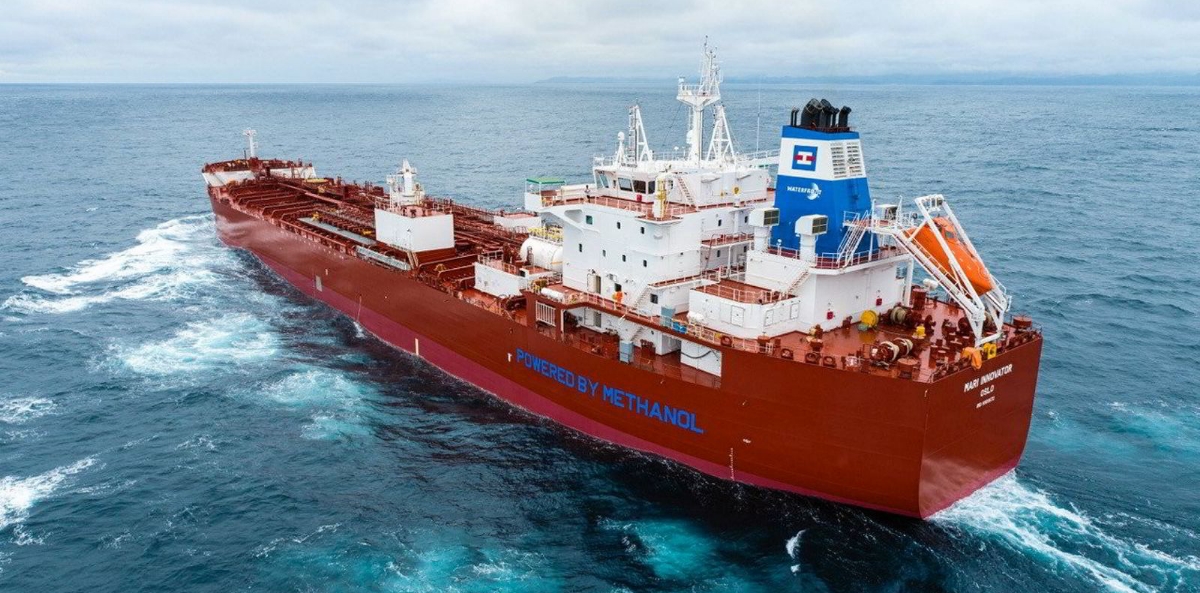Canada-based Waterfront Shipping Company (WFS), a subsidiary of Methanex Corporation, has taken delivery of the fifth in a series of eight methanol dual-fuel tankers from South Korean shipyard Hyundai Mipo Dockyard.

The contract for eight new methanol dual-fuel vessels is being carried out in partnership with Marinvest , Nippon Yusen Kaisha (NYK Line), Meiji Shipping Co., (Meiji Shipping), KSS Line and Mitsui O.S.K. Lines (MOL). The company placed the order for the ships in December last year.
The new 49,999 dwt tanker Mari Innovator measures 186 meters in length and its width is 32 meters. It is equipped with a propeller boss cap fin to enhance propeller efficiency, speed/fuel pilot and frequency-controlled pumps and fans.
Furthermore, the vessel is fitted with a power factor compensator for the alternators which brings its power factor to 0.96 (compared with the average 0.84 for most ships), and is expected to save 11% more energy, according to Marinvest.
Designed with the MAN second-generation B&W ME-LGIM two-stroke dual-fuel engines, the vessels can run on methanol or traditional marine fuels allowing for fuel flexibility.
The MR tanker is part of Waterfront Shipping’s ongoing fleet renewal program, replacing older vessels with newer, more efficient ones, to meet the International Maritime Organisation’s (IMO) zero-emission targets.
“It is the first ship to be IMO Tier III compliant, harnessing an innovative methanol-and-water blending/diesel in water emulsion system in her main engine. This new system brings significant cost savings compared to a Selective Catalytic Reduction (SCR) emissions control system or an Exhaust Gas Recirculation (EGR) NOx emissions control system,” the company stated.
The delivery of eight methanol dual-fuel MR tankers is scheduled between 2021 and 2023. Once delivered, they will join Waterfront Shipping’s existing eleven methanol dual-fuelled ships.
The IMO estimates that methanol will be “ the fourth most significant marine fuel used and is growing.” Known to be sulfur-free, methanol — if produced from renewable green sources — has the potential to bring the industry to a level of carbon neutrality.